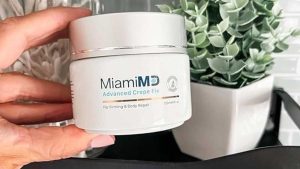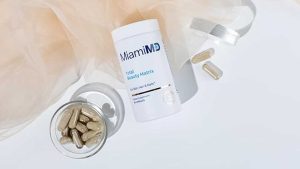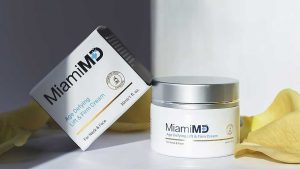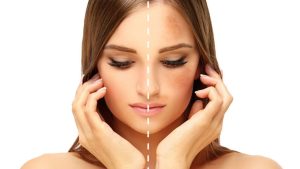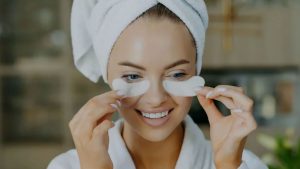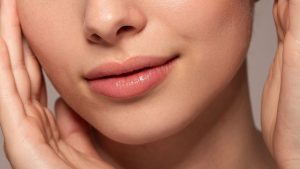Why Shouldn’t You Wash Your Face In The Shower?
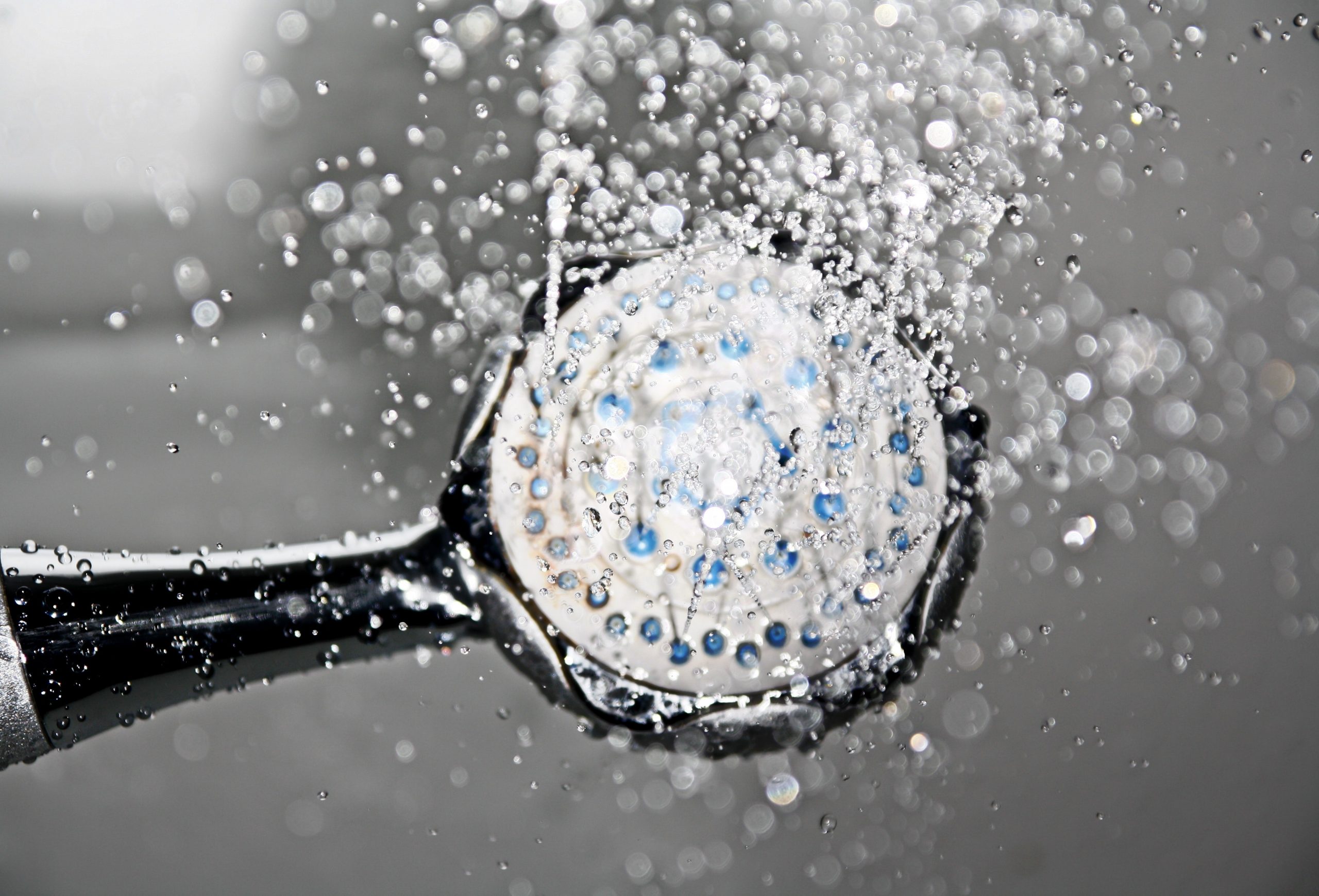
Do you wash your skin over the sink, or are you someone who washes your face during your morning (or evening) shower? It may surprise you that you could be doing your skin a disservice with how, and when, you choose to wash it.
Want to know more?
Miami MD has everything you need to know about why you shouldn’t wash your face in the shower, and what happens when you do.
Why People Wash Their Face In The Shower
If you are one of the many people who wash their face in the shower as part of their morning or evening routine…we get it.
For a lot of people, time is a precious commodity. So if you can simplify your routine enough and save even a few minutes, it makes sense why you would want to do it.
But, like many other things that people do to save time, it can take a negative toll in the long run.
Think of washing your face in the shower like eating fast food. While it solves your immediate problem, it can be worse for your body in the long run.
Developing healthier habits may take a little more time, but it is far better for you as the years pass. Unsure where to start?
Here are a few suggestions of why it’s essential and what you can do to change your habit.
Why YOU Shouldn’t Wash Your Face In The Shower
As we said, although it is totally understandable that you would want to save time by combining your hair, face, and body routines, here’s why you shouldn’t wash your face in the shower, even though it may be more convenient.
Reason #1 : Hot Water Is Bad For Your Skin
To start, think about how hot you like your showers. If the answer is scalding, that’s one of the main reasons why you shouldn’t wash your face in the shower. As great as a hot shower feels, especially after a long day, that hot water comes with a price.
The biggest cost is to your moisture barrier. While the main goal of the body’s moisture barrier is protection and not cosmetic, it is responsible for much of how our skin looks from the outside.
With a damaged moisture barrier, the skin not only starts to dehydrate — leading to the appearance of fine lines and wrinkles.
But it is also far more susceptible to physical, microbial, and chemical sources like allergens, UV radiation from the sun, and viruses. The moisture barrier also protects the skin from losing hydration from the inside.
When you shower in water that is too hot, which is anywhere about 105 degrees Fahrenheit, it starts to break down the natural oils, proteins, and lipids that make up the top layer of the skin — the epidermis and, specifically, the stratum corneum.
Reason #2 : Hot Water Can Lead To Hyperpigmentation
While the hot water itself doesn’t cause hyperpigmentation, the way that impacts the skin can cause the appearance of old scars to worsen.
In some cases, scars can darken over time.
Hot water essentially leads to trauma as it impacts the skin, which causes the skin to respond by producing more melanin in the area of the scar. It can also worsen a condition known as melasma — aka those blotchy, brown patches on the face that appear due to an increase of hormones, pregnancy, or sunlight (UV radiation).
Reason #3 : Hot Water Can Actually Worsen Acne
Because of the damage hot water can do to your skin, its natural response is to produce more sebum (oil) to compensate for the loss of an intact moisture barrier.
While this may help your skin reduce the loss of moisture from the inside, it can also increase the risk of developing or worsening acne. It’s the combination of bacteria and sebum getting stuck in the pores and leading to infection.
Keeping your natural oils at a level that supports your skin but doesn’t clog your pores can keep your skin as healthy as possible.
Reason #4 : Hot Water Can Lead To Worsening Skin Conditions
If you’re one of the many people who suffer from a skin condition like eczema or psoriasis, hot water can trigger them to worsen or flare up. This is because anything that can damage the skin, like hot water, can cause an inflammation-based reaction.
As inflammation is one of the leading factors in triggering skin conditions (as well as other issues like allergies and autoimmune disorders), reducing the temperature of your showers can also help potentially reduce the amount of flare ups you experience.
What To Do If You Can’t Avoid Washing Your Face In The Shower
If you can’t change your routine to avoid having to wash your face in the shower, there are a few things that you can do to help minimize the potential risk to your skin.
First, you’ll have to reduce the temperature of the shower water. Even just taking it down a notch or two, from hot to just warm, can help. This might take some time to adjust to but, if you focus on the benefits that it will help provide to your skin, it may help you to stick it out.
You can decrease the temperature gradually. In fact, you don’t have to make the whole leap all at once.
In addition, try to keep your face out of the direct path of the water when you wash your face. It might be easier to turn around so that your back is in the water while you cleanse your face.
When it’s time to rinse, catch the water in your hands and use it to rinse the cleanser off instead of letting it hit you directly in the face. And, as always, don’t scrub at your skin unless it’s with a professional, dermatologist-recommended exfoliating tool. This includes loofahs.
And finally, keep any hot shower that you must take under 5 – 10 minutes, maximum. The longer of a shower you take, the more time that hot water has to damage the skin. This not only applies to your face but also the skin all over your body.
If you’ve noticed your skin is dehydrated and soaks up any lotion applied nearly immediately, it may be a sign that you should turn down the temp.
How To Begin To Heal Your Skin’s Moisture Barrier And Other Issues
So, why should you wash your face in the shower? It comes down to the damage that it can do to the skin’s moisture barrier. Skin that feels tight, seems extra sensitive, is increasingly oily, or is congested is likely exhibiting symptoms of having a damaged moisture barrier.
To help start to heal it, you’ll have to first back off on your skin care products — especially the ones that contain exfoliants or retinol.
Switch to a gentle cleanser, stop using toners, and find a supportive moisturizer without extra products. In addition to decreasing the temperature of your showers, reducing the stress you put on your skin can be a huge help.
In many cases, this also includes not wearing makeup for at least a short amount of time.
Some people also use a technique known as “slugging,” where they use an emollient (like Vaseline or Aquaphor) on top of their regular moisturizer to lock in the moisture at night.
While it may seem strange, it works!
If you’re noticing an increase in the amount of hyperpigmentation on your face and you want to do something about it, consider investing in a serum that can help to diminish their appearance.
Miami MD’s Dark Spot Corrector is a great option, as it contains an ingredient that has been researched for its ability to help boost vitamin C.
One benefit is that it is an antioxidant, allowing it to get into the skin and fight off the free radicals that can damage the skin and prevent and break down hyperpigmentation.
In addition, vitamin C can also help to trigger the production of both collagen and elastin, which helps maintain firm and youthful skin.
In Summary
If you’re still taking hot showers, turning the temperature down even just a few degrees can make a major difference in your skin. By helping to keep your skin’s moisture barrier intact, your skin can stay healthy, radiant, and youthful.
Miami MD can help you repair your skin so that you can look your best, no matter what the age on your driver’s license says. Beautiful skin is right around the corner so, the next time you’re wondering why you shouldn’t wash your face in the shower, just look in the mirror.
Sources:
The skin: an indispensable barrier | Experimental Dermatology
Are triggers causing your psoriasis flare-ups? | American Academy of Dermatology Association
